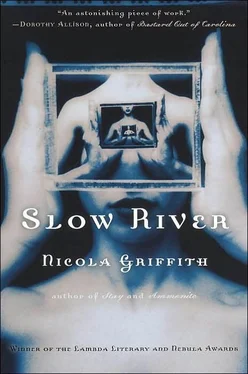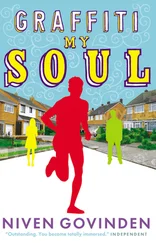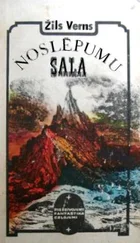An old river made old sounds. The water at Ratnapida had never sounded or smelled like this. There, it fountained in the sunshine, tinkled on stone, plopped when a fish surfaced for a fly. Even the rain sparkled—fast showers, followed by rainbows and glistening grass. Young water, and lighthearted. Maybe that was why Stella had chosen the fountain as her backdrop…
It all seemed so different now: Stella desperate and pleading, begging for Oster to notice, to do something. Giving him, and me, clues that we couldn’t see.
Katerine had watched the whole scene so calmly. Too calmly, I saw now: What mother should be able to watch her daughter like that, half naked, drunk, obviously in some pain? Why hadn’t I thought about that before? Because that’s just how Katerine was: closed up like a lacquered fan.
But not always, Something, some feeling I had never seen, never even caught a glimpse of, had prompted her to steal into her children’s room at night—Greta, Stella, me—and… and… I felt again the heat of the monster’s breath on the back of my neck and the fear, the creeping flesh feeling that something was terribly awry in my seven-year-old world.
How many times had Stella had to lie quietly through that? A mother was a foundation, a cornerstone, a touchstone, not a monster. Not the reason to kill oneself.
All the time my mother had been doing that to my sister I had wanted her to love me, had ached for her approval, had wanted her to believe I was like her.
I had to lean forward with my weight on my palms, I was so dizzy. Did the fact that I knew, now, what she had done make her a different person? Was I a bad person because I still wanted to be like her? And I still did. On some level I always would. It was what I had grown up with, that image of the calm, competent woman.
I didn’t want to think about it. I stared down at my hands, at the drying cobbles, the miniature riverbeds that formed between them. Here and there were discarded remnants of the tourist trade: beverage cans, a torn disk wrapper. It would all be cleaned up by midmorning.
Katerine had always liked things clean and orderly. Efficient. That monster, Tok had called her. That monster can’t be allowed to get away with it.
Tok and Oster talking to the camera. Tok looking—not beaten, I realized, but exhausted. What had they done to her? Where was she? Why hadn’t they said something, anything on the net?
My mother. I imagined her carefully: tidy hair, concise conversation, economical gestures. She had never gestured much, come to think of it. And her hair was always cut the same way, though she did occasionally tint it varying shades of blond, as a concession to fashion. Her eyes… I had never known the color of her eyes. Did she hide them in a subconscious attempt to hide her soul?
My mother, who was all too human. She had got away with hurting her children because she was so… acceptable. But someone must have known. Tok had. And he had tried to tell me. Why had he taken so long to speak out?
My father should have known! But so should I. No: I was a child. Not really.
Had Oster known? I tried to remember how he had behaved that afternoon with Stella in the fountain. He had known something was wrong. He had even asked me what I knew…
He should have known. I couldn’t get away from that. He was my father—Stella’s father—and he should have taken some responsibility, some interest in us apart from that absurd competition with his wife to make us love him more.
He should have known. But he wasn’t a monster. And I missed him. I wanted to have him back. I’d spent the last three years believing him to be something he was not, and I wanted to touch him, maybe have him ruffle my hair, anything, just to make contact again with the father I had thought I had known.
A barge hooted from downriver, a burly morning noise. Almost dawn.
I stretched and stood, feeling strange: wobbly and light-boned. So much had changed. I had my father back, and had lost my mother. And Magyar knew who I was. She could see through the obscuring reflections. To her I wasn’t van de Oest, I wasn’t Criminal, I wasn’t Bird. I was just me, Lore.
* * *
Lore’s birthday came and went. Twenty. She went out in the blustery September wind with the cat’s daily ration of leftovers. As usual she knelt to push the plate under the bushes without really looking, but this time the plate bumped into something soft. She peered into the tangle of dry wood and old, dead leaves.
It was a kitten. Dead. Probably about two weeks old.
Skinny. Fur the color of sand.
She looked at it a long time, then went inside to get her work gloves and spade. It weighed nothing.
Kittens should be round, she thought. It struck her as terribly wrong for something so young to look so used-up. It should have had warm milk, and spring, and a skyful of butterflies to chase. Not a short, hard life and an end on the cold ground.
It was wrong. All wrong.
Spanner was reading. “I don’t really see what the difference is, whether you enjoy it or not.” She barely looked up from the gray book screen in her lap.
“Because it’s a lie.” Because kittens should be round.
Spanner switched to the next page. “It’s flickering again.”
“What?” Lore was confused for a moment; then she realized Spanner was fiddling with the screen contrast. “Turn that book off and listen to me.”
Spanner turned it off, put it down on the cushion next to her. “I was listening. You were saying that if you enjoy yourself it must not be real.”
“You’re being obtuse.”
“No. It’s a job, just like any other. You don’t begrudge Jamaican cane cutters a smoke to make their work less monotonous, do you? Or Chileans a good chew of coca leaf to get them up the next mountain trail where the air’s too thin for anything except their goats. So why deny yourself?”
“Because I hate what we do.”
“You just said you enjoyed it.”
“I do, at the time.”
“Then you’d rather not enjoy it?”
“I’d rather not do it at all.”
“And you’d rather not eat, too?”
“There has to be another way! We could use a fake PIDA, a good one, to get a job. We could—”
“We have a job.”
“I hate it! It makes me feel ashamed, and I’m sick of being ashamed.”
“There’s nothing to be ashamed of. You haven’t hurt anyone.”
“I’ve hurt myself. This is my body, my—”
“Temple, right” Spanner shook her head. “It’s not a temple, it’s a sack of meat.” She slapped herself on the thigh. “A tool made of muscle and skin and bone, to be used the same way we use any other tool.”
“No.” Lore was horrified. “Your body isn’t just a tool like a… a screwdriver. It is you. What it does and feels makes you who you are. Don’t you see that?”
“You are who you fuck?” Spanner’s eyes were challenging. “Then who does that make you?”
“Someone I’m ashamed of.” And Lore understood with blinding clarity why Stella had killed herself. To be used like a receptacle, a commodity, and to know it, to be helpless before it, and then to see that helplessness reflected back at her every time her eyes met her abuser’s across the table, every time she saw herself in the mirror. There would never be any way to escape that kind of shame. She looked at Spanner, who was waiting with her eyebrows raised. “What happened? What happened to you, to make you feel you have to do this?”
“Nothing had to happen. I’m not some pathetic victim, reacting instead of acting.” She folded her arms. “I’m simply a realist.”
Lore stared at her, then shook her head tiredly.
“You don’t believe me?”
But that was not what Lore had meant by the head shake. How could she argue against someone’s reality?
Читать дальше












